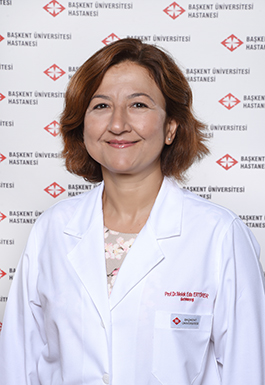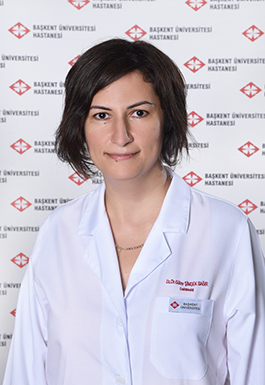Information about diseases can be obtained from www.temd.org.tr.
1. Thyroid gland diseases (goiter)
2. Diabetes mellitus and related problems
3. Obesity
4. Pituitary gland diseases (acromegaly, Cushing's disease, prolactinoma, craniopharyngioma)
5. Conditions caused by hormonal disorders such as hirsutism and menstrual irregularities (polycystic ovary syndrome)
6. Osteoporosis (bone thinning)
7. Other endocrinological problems (hypoglycemia, parathyroid hormone issues, adrenal gland diseases, lack of sex hormones)
GOITER
Goiter refers to the enlargement of the thyroid gland. The gland can enlarge as a whole or in a nodular form. It is a common issue in Turkey, affecting at least 30% of the population.
Hypothyroidism: It means reduced functioning of the thyroid gland. It can be observed after thyroidectomy or in some diseases affecting the thyroid due to the immune system (such as Hashimoto's disease).
Hyperthyroidism: It means over-functioning of the thyroid gland. It can occur due to some diseases affecting the thyroid by the immune system or toxic (over-functioning) nodules.
Thyroid Cancer: It is one of the most commonly diagnosed cancers worldwide, usually non-fatal but often recurrent. It originates from nodules in the thyroid gland. It is reported that approximately 5 out of every 100 nodules can be cancerous. Diagnosis is made by biopsy of the nodule deemed appropriate by the doctor. The primary treatment for thyroid cancer is surgery. Subsequently, high-dose radioactive iodine therapy may be applied in selected patient groups.
DIABETES MELLITUS
Our unit treats all types of diabetes mellitus from the early stages. Our diabetes treatment team, consisting of specialist physicians, dietitians, and diabetes education nurses, is eager, experienced, and knowledgeable in solving our patients' questions and problems. Our clinic also offers services in advanced diabetes technologies, such as continuous glucose monitoring systems and insulin infusion pump applications.
OBESITY
Due to industrialization, people are increasingly eating unhealthily and exercising less, leading to weight gain. Obesity is not just a cosmetic issue but a significant health problem, leading to an increase in heart and vascular diseases, especially diabetes.
PITUITARY GLAND DISEASES
The pituitary gland, located deep in the brain, secretes many vital hormones necessary for life. Benign tumors of this gland, known as adenomas, can cause disease by secreting excess hormones or by growing to large sizes and pressing on surrounding tissues. Symptoms can include growth of hands and feet, breast fullness or milk discharge, menstrual irregularities, infertility, and hormone deficiencies due to pressure.
HORMONAL DISORDERS CAUSING HIRSUTISM AND MENSTRUAL IRREGULARITIES (ESPECIALLY POLYCYSTIC OVARY SYNDROME)
An important health issue that can present with symptoms such as hirsutism, menstrual irregularities, and infertility in women of reproductive age is polycystic ovary syndrome. This syndrome is more common in individuals with a family history of type 2 diabetes. Affected individuals are at a higher risk of developing diabetes later in life.
OSTEOPOROSIS
Osteoporosis, typically seen in postmenopausal women, is a significant health issue that can lead to hip fractures, spinal fractures, and other complications. Factors such as smoking, early menopause, petite body type, family history of fractures, lack of sunlight exposure, excessive coffee consumption, prolonged use of cortisone-like drugs, and physical inactivity can contribute to osteoporosis.
OTHER ENDOCRINOLOGICAL PROBLEMS
Hypoglycemia( low blood sugar), problems with parathyroid hormone, high and low blood calcium levels, adrenal gland diseases, adrenal insufficiency, adrenal adenoma-cancer, congenital adrenal hyperplasia, etc.
Hypogonadism( lack of sex hormones): Conditions like Klinefelter syndrome, Turner syndrome, etc.
Detailed information on frequently used diagnostic methods can be obtained from www.temd.org.tr.






